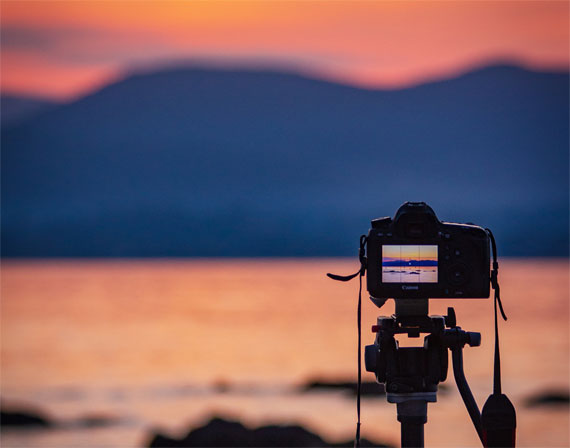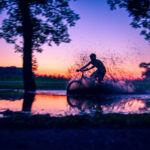In the fast-paced digital age, where cameras are equipped with advanced autofocus systems, the ancient art of manual focus might seem obsolete. However, for some landscape photographers, this traditional technique remains not only relevant but preferred. Let’s delve into the reasons why manual focus can be a valuable tool for landscape photography.
Related reminder: only a few days left for The Landscape Bundle 2025 Pre-order

Photo captured by Renan Brun
1. Precision Control:
While modern autofocus systems are impressive, they’re not always perfect. In landscape photography, the desired point of focus might be subtle — perhaps a delicate dewdrop on a leaf or a specific rock in a river. Manual focus allows photographers to select and refine their focus point with surgical precision, ensuring that the intended subject is razor-sharp.
2. Creative Freedom:
Landscape photography isn’t always about getting everything in focus. Sometimes, a little selective blur is what you need to draw attention to a specific subject or create a sense of depth. By using manual focus, photographers can make artistic decisions on what elements should be in focus and which should not, adding depth and interest to their compositions.
3. Unpredictable Subjects:
Although not unique to landscapes, scenes with elements like mist, rain, or moving foliage can confuse autofocus systems. By manually focusing, photographers can bypass these distractions and focus on what truly matters.
4. Low Light Mastery:
In the soft light of dawn or the deep shadows of dusk, even the best autofocus systems might hunt or fail to lock focus. During these magical moments of light, manual focus allows photographers to ensure they get the shot without struggling against the limitations of their gear.
5. Hyperlocal Distance:
One common practice in landscape photography is using the hyperfocal distance to ensure maximum sharpness from the foreground to the background. Calculating and setting the hyperfocal distance is more straightforward with manual focus, giving seasoned photographers an edge in capturing sprawling vistas.
6. Avoiding Autofocus “Hunting”:
In scenes with less contrast or in challenging light conditions, autofocus can “hunt” – constantly adjusting without settling on a focus point. This not only wastes battery but also might cause you to miss a fleeting moment. Manual focus eliminates this problem.
7. Connection to the Craft:
There’s a unique satisfaction derived from manually focusing a lens. It connects the photographer to the act of capturing the image on a deeper level. This deliberate, tactile process can slow photographers down, encouraging them to be more thoughtful about composition, framing, and the story they’re trying to tell.
8. Equipment Longevity:
Autofocus motors, especially in older lenses, might wear out or become less accurate over time. By mastering manual focus, a photographer can extend the life of their equipment, ensuring they can still capture stunning images even if the autofocus fails.
In Conclusion:
While there’s no denying the advancements and conveniences of modern autofocus systems, manual focus offers a combination of precision, control, and artistic freedom that can be invaluable in landscape photography. For those willing to practice and perfect the technique, manual focus is more than just a nod to tradition; it’s a tool that can elevate your photographic vision to new heights.
For Further Training:
Are you ready to take your landscape photography to new heights? Whether you’re an aspiring photographer or a seasoned pro, the Landscape Photography Bundle 2025 is your gateway to mastering the art of capturing breathtaking landscapes.
For a limited time, you can gain access to world-class training, expert tutorials, and exclusive resources—all at a fraction of the retail price!
Pre-order offer ending soon: The Landscape Photography Bundle 2025
Like This Article?
Don't Miss The Next One!
Join over 100,000 photographers of all experience levels who receive our free photography tips and articles to stay current:







Leave a Reply